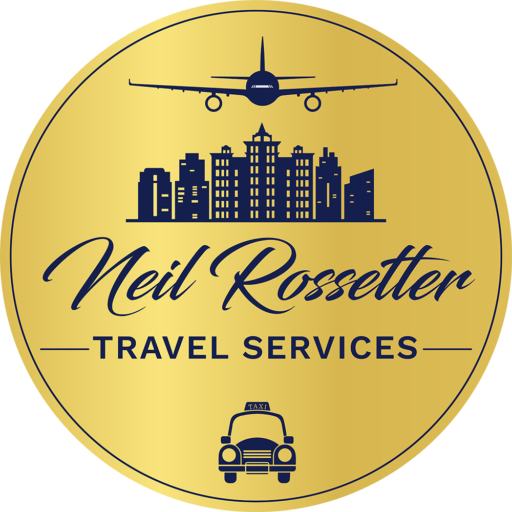Why Corporate Portals Don’t Work for Business Travellers
It’s 4:30am and you’re in a taxi to Heathrow. Why? Because the portal proudly found you a flight that was £40 cheaper — but only if you left home in the middle of the night.
On paper, it’s a saving. In reality, it’s a full day written off to grogginess and turning up distracted instead of at your best.
This is what corporate booking portals do best: optimise for numbers on a spreadsheet, not for the person who actually has to drag themselves
out of the house before dawn and somehow close a deal on no sleep.
The Promise vs The Reality
Corporate booking portals are sold as the holy grail of business travel: cheaper, faster, compliant with policy.
On a slide, they look flawless — neat dashboards, tidy reports, clean graphs.
But for the traveller? The reality feels very different. Many systems remain clunky, the choices limited, and what looks logical to finance often makes little sense when you’re the one boarding the flight.
Hotels: a client once showed me the handful of “options” they were offered in New York. None of them were anywhere near the meeting venue.
The hotel across the street — the obvious choice — wasn’t even listed, because it wasn’t on the preferred supplier list.
Flights: one system suggested a connection that landed at Heathrow at 7:15am for a 9am meeting in the City. On paper, fine. In practice, it meant two hours in traffic on the M25 before the day had even begun.
The spreadsheet saving looks clever. On the ground, it drains time, energy, and the sharpness you need when the meeting starts.
The Human Factor

Portals treat every traveller like a line item. They can capture your name, passport number, even your seat preference — but they don’t understand context. A travel advisor does.
An algorithm won’t think twice about landing you at Gatwick for a 9am meeting in Canary Wharf — a transfer that eats into your morning and your focus before the day has even started.
It won’t suggest the hotel where your client always hosts drinks — the kind of detail that builds rapport before a single word about business is exchanged.
And while portals can process bookings, they can’t anticipate needs. They don’t know that you prefer evening flights because you’ve got kids at home, or that an extra hour in the lounge helps
you clear emails before boarding. An advisor remembers, anticipates, and fixes things before you even have to ask.
When Things Go Wrong

This is where portals often fall short. They work when everything runs smoothly — but the moment a flight is cancelled, a train is disrupted, or plans change at short notice,
the options narrow quickly and you’re usually pushed onto a call centre line with limited flexibility.
When BA cancelled the last flight out of JFK, a client called me from the gate with the board flashing cancelled and no alternatives in sight. By the time the airline app had refreshed,
they were already rebooked via Lisbon and on their way home.
In the UK, rail strikes threatened to derail a client’s trip to Manchester. The portal flagged the booking as cancelled and offered no replacement. I re-routed them via Birmingham
with a driver waiting at the other end — they still made the meeting on time.
And sometimes the stakes are even higher. A corporate jet pilot needed to reach Burgess Hill for a mandatory simulator session — training worth several thousand pounds and essential for keeping his licence current.
The portal offered no workable solution. Within the hour, I had him confirmed on an alternative flight so the session went ahead as planned.
A portal can sell you a ticket. An advisor can save your trip.
The Hidden Costs Nobody Talks About

- Time: many executives spend the equivalent of a working day each month struggling with online systems — scrolling through limited options, re-entering details, or waiting on hold when things go wrong. Put that against their day rate and the “saving” disappears.
- Productivity: arrive exhausted from a 5am departure, or spend two nights in an anonymous hotel miles from where you need to be, and you don’t walk into the boardroom at your best.
- Missed value: early check-ins, late check-outs, room upgrades, flexible terms, guaranteed high-speed Wi-Fi — the advantages I can unlock through Virtuoso or Simplexity — are rarely visible in a corporate portal.
It looks efficient in theory. In reality, the business pays more: in wasted time, in reduced effectiveness, and in opportunities the company never even sees.
The Case for a Travel Advisor
This is where the difference becomes clear. A portal is a booking tool; an advisor is a strategic partner.
I don’t just book tickets. I design travel that supports your objectives — when you need to arrive, how you need to arrive, and what matters when you get there.
That means choosing flights that fit your schedule rather than forcing your day around the cheapest fare. It means securing hotels that enhance both your rest and your reputation.
And it means planning connections so you arrive prepared to perform.
An advisor also brings influence. Through Virtuoso and Simplexity, I can secure advantages no portal can match: priority rates, complimentary upgrades, early check-ins, flexible terms, and even guaranteed high-speed Wi-Fi — the details that matter when time is money.
Most importantly, you have someone accountable on your side. When flights are cancelled or meetings move, you’re not left waiting on hold. You have a direct line to solutions.
Beyond the Portal
Spreadsheets and portals will always have their place. They keep finance teams satisfied, produce tidy reports, and tick procurement boxes. But for the people who actually have to get on the plane,
sit in the meetings, and deliver results, that’s rarely enough.
Business travel isn’t just logistics — it’s performance. And performance depends on arriving rested, prepared, and in control. That doesn’t come from a limited portal screen or a call centre queue.
It comes from a trusted advisor who knows your priorities, anticipates problems, and makes sure the journey supports the outcome.
The real saving isn’t £40 off a ticket. It’s a day of productivity, a deal closed, or a training session that goes ahead on schedule. That’s the difference a trusted advisor makes.



